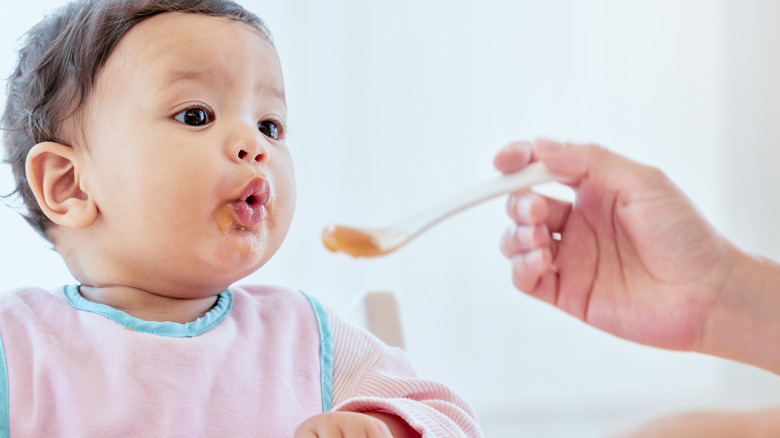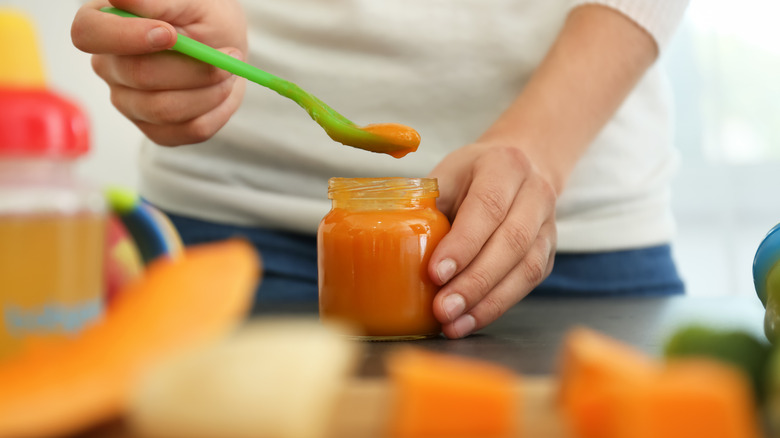How The FDA Is Attempting To Reduce Lead Exposure In Baby Food
Lead exposure can pose serious health risks to young children, according to the U.S. Centers for Disease Control and Prevention (CDC). Such risks include brain and nervous system damage, learning and behavioral issues, hindered growth and development, as well as difficulties with speech and hearing. As a result, young children exposed to lead may face challenges with attention, schoolwork, or have a lower IQ score.
There are different ways in which a child may come in contact with lead. Exposure can occur through inhalation or ingestion of contaminated water or soil, lead-based paint, as well as certain food items, explains the CDC. However, some of these food items are consumed by children on a regular basis. Findings from a 2019 study issued by Healthy Babies Bright Futures (HBBF) revealed that out of 168 baby food products tested, including those from major commercial brands, heavy metals (including lead) were detected in 1 out of every 4 products. Additionally, over 80% of the baby food products tested contained lead levels exceeding the recommended limit by public health advocates. According to data collected by the U.S. Food and Drug Administration (FDA) between 2018 and 2020, baby foods with the greatest amounts of lead included sweet potatoes, sandwich cookies, and teething biscuits. Now, the FDA is recommending new industry guidelines regarding lead levels in processed baby foods.
New baby food lead level recommendations
The new guidelines come under the FDA's Closer to Zero action plan, in which experts progressively work to decrease levels of toxic chemicals, including lead, in consumer food items. The document was released on Tuesday, reports CNN. Under these guidelines, the new suggested limit for lead levels in fruits, vegetables, mixtures, yogurts, single-ingredient meats, custards, and puddings is 10 parts per billion (ppb). For single-ingredient root vegetables and dry infant cereals, the suggested limit is 20 ppb. The agency noted that these guidelines serve as recommendations, rather than company requirements.
However, some experts feel that further government action is required. "The FDA hasn't done enough with these proposed lead limits to protect babies and young children from lead's harmful effects," Jane Houlihan, the National Director of Science and Health for Healthy Babies Bright Futures, told CNN. Furthermore, research show that the problem extends beyond just processed baby foods. According to a 2022 report by Healthy Babies Bright Futures, there was no difference between levels of toxic heavy metals found in store-bought baby food compared to homemade baby food, even those made with organic ingredients. "What this says is that as the FDA is setting standards for heavy metals in baby food, they need to go beyond the baby food aisle," Houlihan told CBS New York. As per the report, food items with the least amount of contamination included eggs, infant formula, peas, soft or pureed home-cooked meat, and non-canned fresh or frozen fruit.

